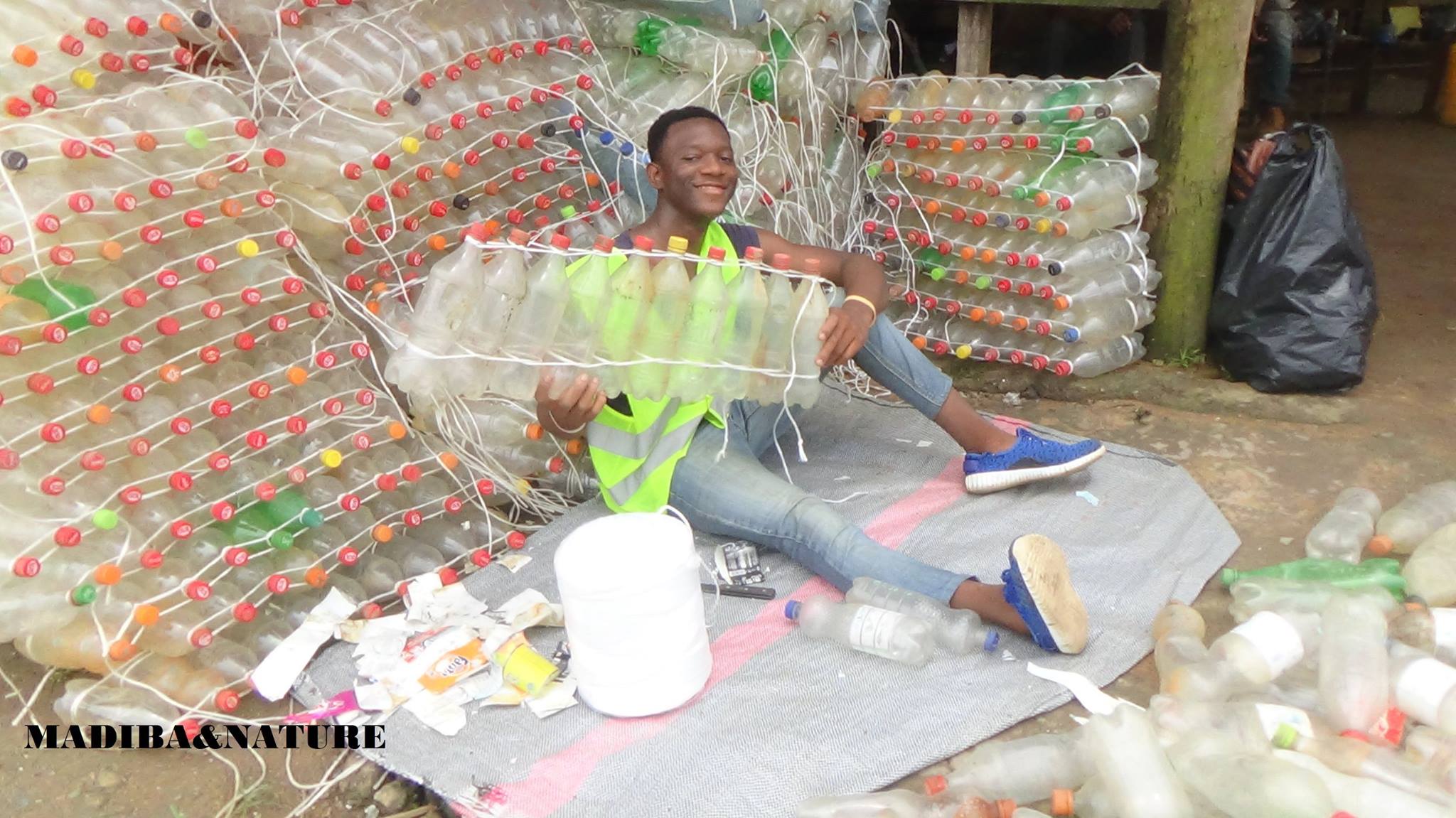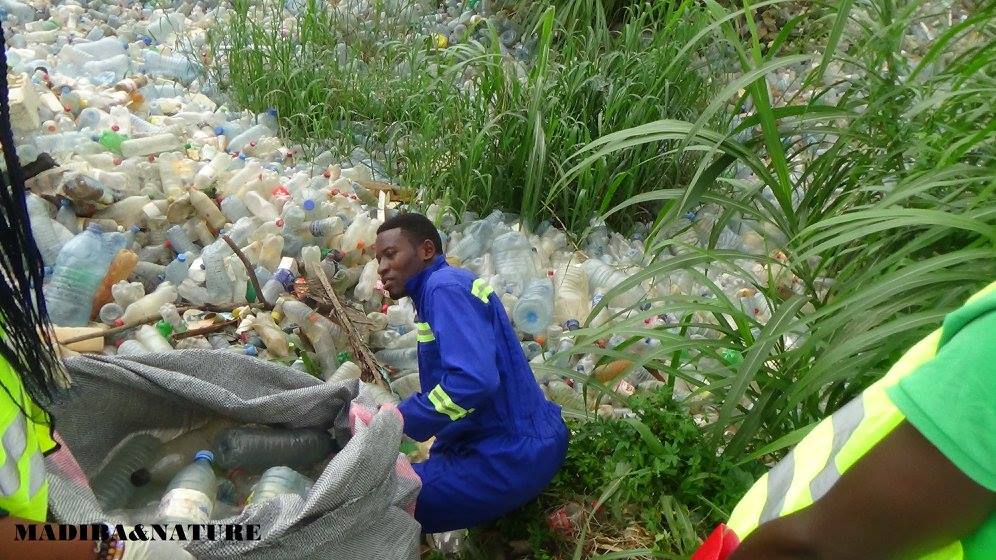
These innovative DIY-ers in Cameroon are upcycling plastic trash into durable oceangoing craft and other really useful stuff.
Madiba & Nature: the Cameroonian NGO transforming plastic waste into bottle boats and more…
The vision of the non-profit NGO is to reach an Africa where “the circular economy contributes to the creation of jobs, protection of nature through recycling and recovery of plastic waste, development of renewable energy, management of aquatic landscapes, urban areas and protected areas “.
Madiba & Nature are transforming Cameroon’s plastic waste into bottle boats, homes & furniture
Madiba & Nature, describes itself as an NGO of Cameroonian student researchers who define themselves as a non-profit organisation and work to promote the circular economy in order to ensure the conservation of nature and its biodiversity.
The NGO was created by Essome Ismaël, a young Cameroonian, to fight against the pollution of plastic waste in aquatic, marine and urban environment in Cameroon. This should allow for better adaptation to climate change on the continent.
The vision of the NGO is to reach an Africa where — “the circular economy contributes to the creation of jobs, protection of nature through recycling and recovery of plastic waste, development of renewable energy, management of aquatic landscapes, urban areas and protected areas“.
Madiba & Nature educates people about the preservation of the environment and wants to help change their mentalities and bad habits regarding the management of plastic waste that degrade sensitive ecosystems.
Source: GovaMedia – Promoting Africa

To make an entire boat takes around one week and 1,000 plastic bottles Essome Ismaël started by gathering 1,000 plastic bottles collected in the drains of Douala, the economic capital of Cameroon, and then assembled them into blocks of ten connected by a wire, which makes them move like a caterpillar. Source: Facebook/Madiba&Nature
“We want to help change people’s attitudes and bad habits on the management of plastic waste…”
The notion of designing a boat made from recovered and recycled plastic bottles first came to Essome Ismaël in 2011, when the student was forced to take shelter from heavy rain and observed plastic bottles flowing past. It only took a few minutes of downpour before his neighbourhood was flooded.
He started by gathering 1,000 plastic bottles collected in the drains of Douala, the economic capital of Cameroon, and then assembled them into blocks of ten connected by a wire, which makes them move like a caterpillar. To make an entire boat takes around one week.
Since April 2016, Madiba & Nature has grown team into a team of five, assisted by volunteers and students.
“A plastic bottle can stay for more than 450 years in nature, so the duration of these boats will depend of the intensity of use and whether we are in a sea area or river.”
There’s a great need for strong and seaworthy fishing boats in the Kibri region, Ismaël’s area, but he isn’t stoping there. The 27-year-old also makes beds, furniture and tourist holiday homes from bottles. However, the dream is to create a system that enables the vulnerable people in Africa to make use of waste products to build homes.
Madiba & Nature also plans to develop other kinds of tourism based on ecological practices that help contribute to the diversification of these people’s sources of income, while fighting pollution and stopping flooding from plastic bottles that clog up the local waterways with devastating effects.
Recycling is a new sector in Cameroon. Although there is regulation for sustainable management and recycling of waste by enterprises, very few of them respect this rule. There is also a lack of knowledge and technology when it comes to recycling plastic: “I come from a coastal region where communities live by fishing, farming and tourism,” Ismaël told Lisa Goldapple, for Atlas of the Future , “and I have seen growing businesses collapse due to plastic waste pollution and people dying of poverty.”
In times of climate change and deforestation, Ismaël recognises the importance of drawing on reserves for our development, such as reusing plastic, rather than constructing with wood. He has also started a programme in schools and for engineers to learn more about green business, and has developed an environmental awareness and education program: “We want to help change people’s attitudes and bad habits on the management of plastic waste that degrades sensitive ecosystems.”
Source: AtlasOfTheFuture

Viewing plastic trash as a resource with intrinsic value promotes a circular economy mentality Why chop down trees for wood to build when there is plastic lying about in abundance? Source: Facebook/Madiba&Nature